While fishing can be a great way to spend some time outdoors and relax, you have to be cautious of safety hazards while onboard a fishing boat. In order to avoid any accidents from happening, there are several fishing safety best practices to follow. While we believe that every angler should know these 5 fishing skills, safety is at the heart of making sure your next fishing trip is a successful one.
PREPARATION
Before you even board the boat, you can take steps to avoid safety hazards while on the water. You should always look at the weather for the area and the water that you are planning to fish on right before you go. This will help you dress appropriately to avoid unexpected exposure to the elements. You should also research the layout of the waterway you’ll be fishing on and ensure you are prepared to navigate it - this helps ensure you won’t get lost and helps you learn if there are any areas that you are not permitted to fish in.
In general, it is good practice to look your boat and equipment over to make sure it is in good shape and ready to go - you may also want to sharpen your hooks and knives beforehand to avoid dropping them while doing so onboard.
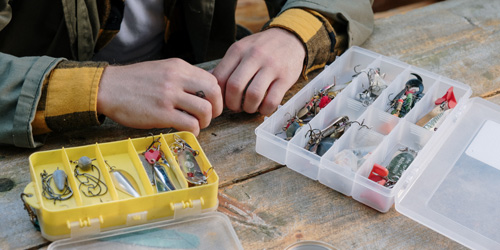
BRING THE RIGHT EQUIPMENT ONBOARD
Having the right equipment onboard is extremely important. Not only does it help avoid accidents, but it is also the law. It is a great idea to keep a first aid kit onboard - you can even buy first aid kits that are specially designed for injuries you might encounter while fishing. Ensure the kit you decide on is waterproof. You should also keep throwable flotation devices, sound and visual signaling devices, and a fire extinguisher onboard.
To keep these close at hand and the deck less cluttered, it is a great idea to add a t-top storage bag. It is also a good idea to have protection from the sun whether that be a shaded area on the boat such as a t-top, sunscreen, or both. To help you get around the deck safely, a deck mounted grab bar is a good addition to your center console boat. This is just a start, there is more fishing gear and basics you may need.
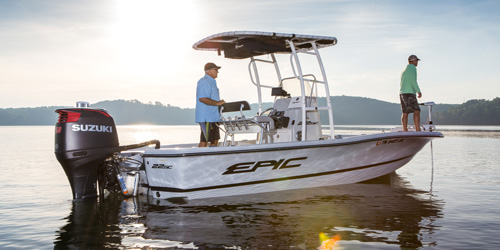
WHAT TO WEAR FOR OPTIMAL SAFETY
When preparing for a fishing trip, it’s important that everyone on board is dressed appropriately. Everyone on your boat needs to have a life jacket available that fits them well - kids 12 and under must wear it at all times. Depending on the weather, there are a variety of things to keep on hand while onboard a fishing boat. Rainwear is a great idea to keep on hand at all times because you never know when it could start raining. There are a variety of styles including a rain suit, ponchos, and more. Ensure that your rainwear is waterproof, not just water resistant so you don’t find yourself soaked through and chilled. It is also a good idea to keep sunglasses onboard. They protect your eyes from the sun’s harmful UV rays and also reduce the glare to allow you to see below the surface of the water better. And as we mentioned above you should always have sunscreen on hand as well.
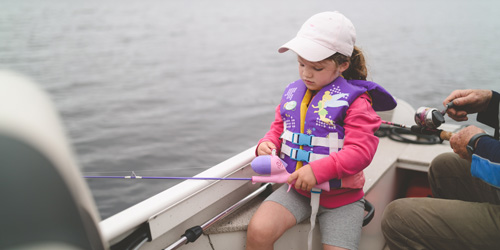
MANAGE HOOKS WISELY
When you are not using your hooks and lures, they should always stay in closed tackle boxes or stored in a dedicated space on your boat. This helps avoid anyone accidentally getting hurt by stepping, sitting, or touching a hook. You should also wear safety glasses to protect your eyes in case a hook goes wayward. It is a good idea to learn how to remove a hook from someone’s skin in case this does happen.
Safely handling your hooks and lure is only part of managing your hooks wisely. You need to know how to properly set your hook once you have a fish on your line to avoid injury and of course, avoid letting your fish get away.
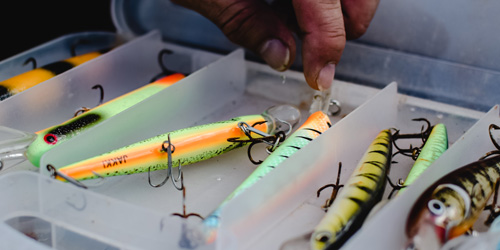
KEEP YOUR BOAT DECK CLEAR
A huge part of boat safety is keeping your boat deck clear. You should have a “home” for all of your gear, snacks, and drinks. There are a wide variety of storage products for center console boats including t-top storage bags, leaning post storage bags, electronics boxes, tackle storage bags, and more. Having a home for all of your items not only helps you keep your boat deck clear, but also protects your gear. If your boat is cluttered, this increases the chances of someone tripping or stepping on something that could lead to injury. It is also important to clean your boat deck in order to avoid anything sticky, small items you may not see otherwise, and slippery spots.
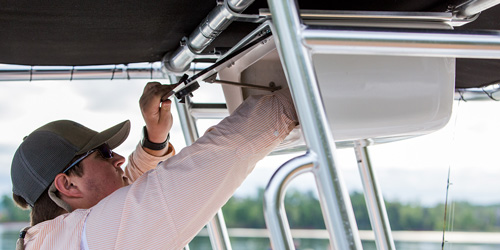
HANDLE FISH CAREFULLY
You should keep your fish wet and calm and provide proper support when handling it. Avoid squeezing it tightly, and never hold a fish by its gills. When it is time to remove the hook, you should try to do so quickly and calmly - keeping the fish in water or holding it upside down will help relax the fish which makes it easier to remove the hook. You should also use the right tools such as needle nosed pliers to remove the hook, and if it is too deep you should leave the hook and cut your line as close to the hook as possible. Knowing the anatomy of the fish you have caught is important as some fish have barbs or spines that you have to look out or while handling them and removing the hook.
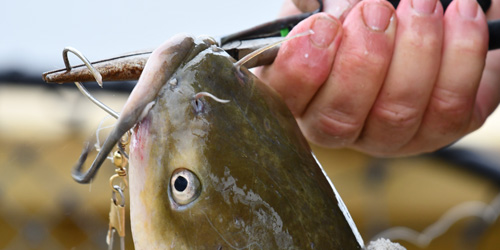
KNOW HOW TO NAVIGATE THE WATERWAY
An extremely important aspect of fishing safety is knowing your waterway. You should know what all of the markers mean for the waterway you are on, be aware of restricted areas, and know how to get to where you want to go and back. Having a GPS system can also help reduce the concern of getting lost or going into restricted areas. You’ll often see colored buoys indicating different things such as no wake zones, restricted areas, and channels - each of these vary from waterway to waterway, so it is important that you research and understand the meaning behind these buoys for the waterway you are going on. While following these buoys and basic boating right of way should keep you safe, you should always be aware of other boaters and be prepared to switch navigation to avoid a collision.
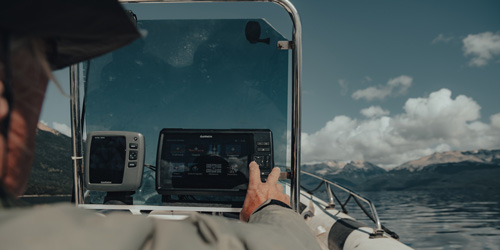
Now that you know how to stay safe on board your fishing boat it's time to plan your next fishing trip. Where will you go?












Comments
Please log into your account to post comments